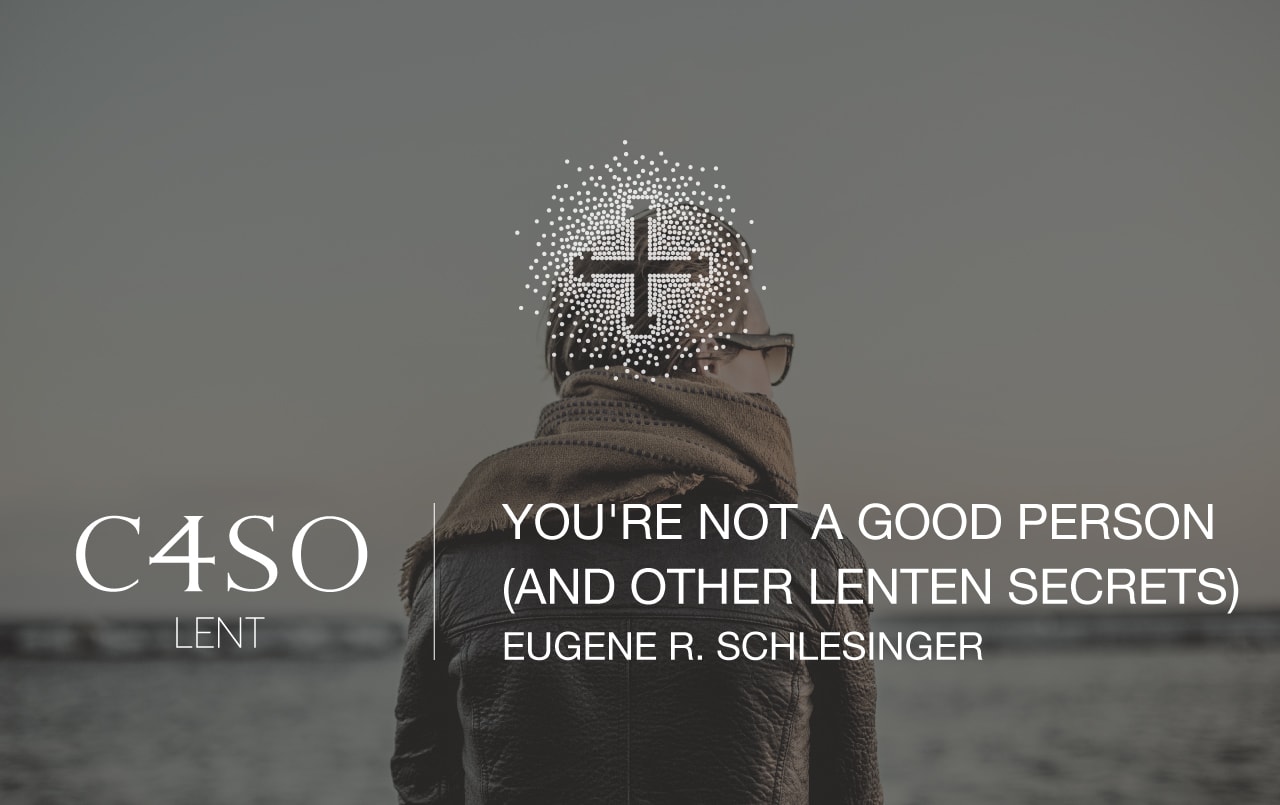A reflection by Eugene R. Schlesinger.
Christianity is full of odd juxtapositions. I suppose our central belief in the Incarnation of God in Jesus of Nazareth should prepare us for this. If God and humanity can be joined together without confusion, change, division, or separation (see the Definition of Chalcedon, p. 864 in the Book of Common Prayer), then we should be prepared for all manner of seeming paradoxes.* And the season of Lent, where we are called to embrace our mortality, even to die to ourselves in order to truly live is particularly pregnant with these strange pairings.
In Mark 8:34–37 Jesus warns us of the possibility of gaining the world, but losing our souls. At the same time, though, Paul writes to the Romans that God made Abraham (né Abram) the heir of the world (4:13). There is a right way and a wrong way to gain the world, it would seem. The wrong way to gain the world, the soul stealing way to gain the world, is to make the mistake of thinking you deserve it. Paul makes this very clear in his letter to the Romans. The world was promised to Abraham and his descendants by faith, not by the law. We inherit the world, but we do not earn it.
When my grandmother died, she left me a fair amount of money. That money has helped us considerably (kept us out of debt, helped pay for the adoption of our daughters, and so on). I did not earn that money, though. And only a truly conceited/delusional person would think he or she has earned his or her inheritance (I may be conceited, but I’m not delusional). My grandmother left it to me because she loved me, not because I am a wonderful person.
When it comes to our salvation, we are seriously misguided if we think that we are saved because of what we have done—whether that takes the form of praying a special prayer, having the right theology, being on the right side of particular social issues, having your good deeds outweigh your bad, and so on. Our baptismal liturgy puts it well: we put our whole trust in Jesus’s grace and love (BCP, p. 302).
One thing that Lent is really good at is bringing us face to face with the fact that we’re not wonderful people. In fact, let me suggest to you: if you’ve made it this far into Lent and you’re feeling pretty good about yourself, you’re doing it wrong. My practice of Lent makes it really clear to me that if I’m going to be saved, it’s going to have to be by Jesus and his grace, and not because I’m a good person. I’m tired, and hungry, and irritable, and tempted to slacken in the disciplines I’ve chosen. It’s a lot of this:

Punctuated with this:
And I think that’s part of the point: to make me say, earnestly, kyrie eleison: Lord have mercy.
And Lent also reminds us that the Lord does indeed have mercy. The opening acclamation of our liturgy reminds us that the Lord forgives all our sins and that his mercy endures forever (BCP, p. 351). Every year I enter this season thinking of the ways I want God to change me, to make me holier, to make me a better person. And he probably does some of that. But what I experience is the reminder that I am a sinner, but that Jesus has come to save sinners. He “was handed over to death for our trespasses and was raised for our justification” (Romans 4:25).
This is the way to gain the world without losing your soul. To recognize that Jesus has gained it by his death and resurrection, and to come to him in humility, penitence, and faith. If God accomplishes nothing else in your life this Lent but does that, it will have been worthwhile. (But he’ll probably do some other stuff too).
*It’s important to note that this is a seeming paradox, not an actual one. Paradoxes are logically contradictory. They are nonsense. The Incarnation isn’t nonsense. It’s a mystery.
Eugene R. Schlesinger is a Rev. John P. Raynor, SJ Fellow at Marquette University and attends Christ Redeemer Anglican Church in Milwaukee, WI.

